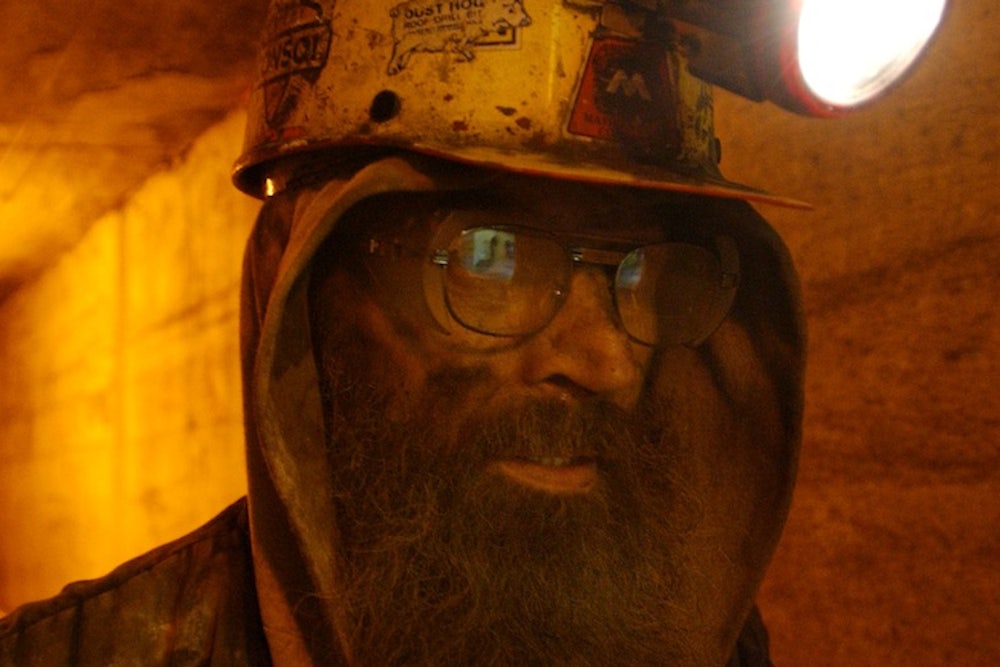This week, coal miners and industry representatives appeared at Environmental Protection Agency hearings held in four states to denounce the agency's proposed regulations on carbon emissions. “Coal mining is a family business,” a West Virginia miner testified at Friday's hearing in Pennsylvania. “It will do more harm than good. It will also change the economy in a damaging way.” But miners aren't universally opposed to federal regulations. Just two days earlier, a retired Kentucky miner suffering from black lung disease appeared at an EPA hearing in Colorado and, in opposition to industry representatives, called for more government oversight. “We’re dying, literally dying for you to help us,” Stanley Sturgill said.
New federal rules in effect Friday mark the first time in 45 years that federal officials have updated labor rules to prevent black lung disease, which is caused by inhaling toxic coal dust and silica in mines. By the time the rules are fully in effect in 2016, workers should be exposed to 25 percent less coal dust, saving lives. The U.S. Department of Labor’s Mine Safety and Health Administration can now give citations to companies immediately when a single sampling shows excessive dust levels. Companies also must sample throughout workers' 10- to twelve-hour shifts, take samples in more locations in the mine, and provide more medical screenings.
If we've known about this issue for decades, then why hasn’t the government done more to protect coal miners’ lungs? The answer lies in the industry's aggressive opposition to reform: Whenever coal faces new regulations, the industry insists that its role as a job creator should take priority over pollution control. Just this week, pro-coal interests made this point in hearings on EPA climate regulations for carbon emissions. We’ve come to expect this response to environmental and climate regulations, but the industry uses the exact same script when regulators are talking about protecting coal workers' health.
The rules are better late than never. Over four decades, more than 76,000 miners have died directly or indirectly from black lung. Those rates have risen in recent years in central Appalachia, most alarmingly among young workers.

There are a number of reasons for this increase: Longer shifts and more effective mining equipment that creates more dust. But regulations could have helped in both cases. Before, mine supervisors did not have to monitor levels throughout a worker's shift. At least one of the proposals to fix this—wearing continuous monitoring devices—has been around since the early 1970s, MSHA head Joseph Main told SNL Energy. In 1998, the coal industry fought off a proposed coal dust update by filing a court appeal. As part of a campaign to "end black lung," MSHA proposed updated rules three years ago, only to delay it. Reporter Ken Ward attributed the delay to coal lobby pressure and Republican interference. Finally, after extended conversations with coal companies, officials agreed to require new monitoring equipment and lower the level of exposure considered safe after a two-year “common sense phase in,” so they're effective in 2016.
Both the National Mining Association and Murray Energy have filed separate lawsuits against MSHA. Murray Energy claims MSHA “clearly seeks to destroy the coal industry and the thousands of jobs that it provides." And NMA senior vice president Bruce Watzman told The Denver Post, "The agency focused on the entirety of the industry where the problem doesn't exist rather than on what we believe is a localized problem."
The coal industry isn't just fighting the government over black lung; it's fighting its own workers. In-depth investigations conducted by the Center for Public Integrity found the industry often colluded with doctors and deployed teams of lawyers against workers claiming black lung benefits, in order to downplay the number of cases. After the investigation, the Labor Department discovered that more than 1,000 miners may have been wrongfully denied their medical benefits.
